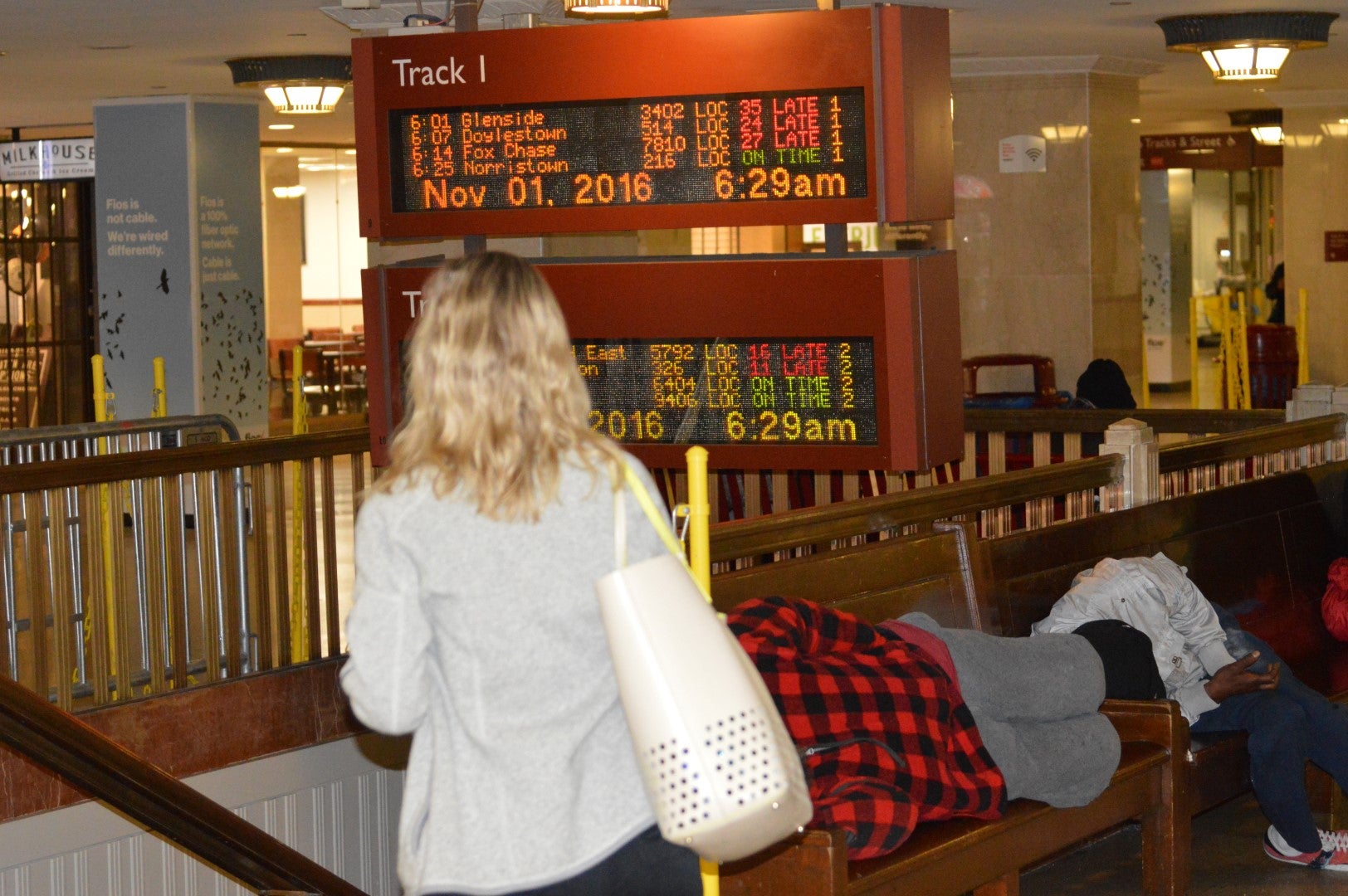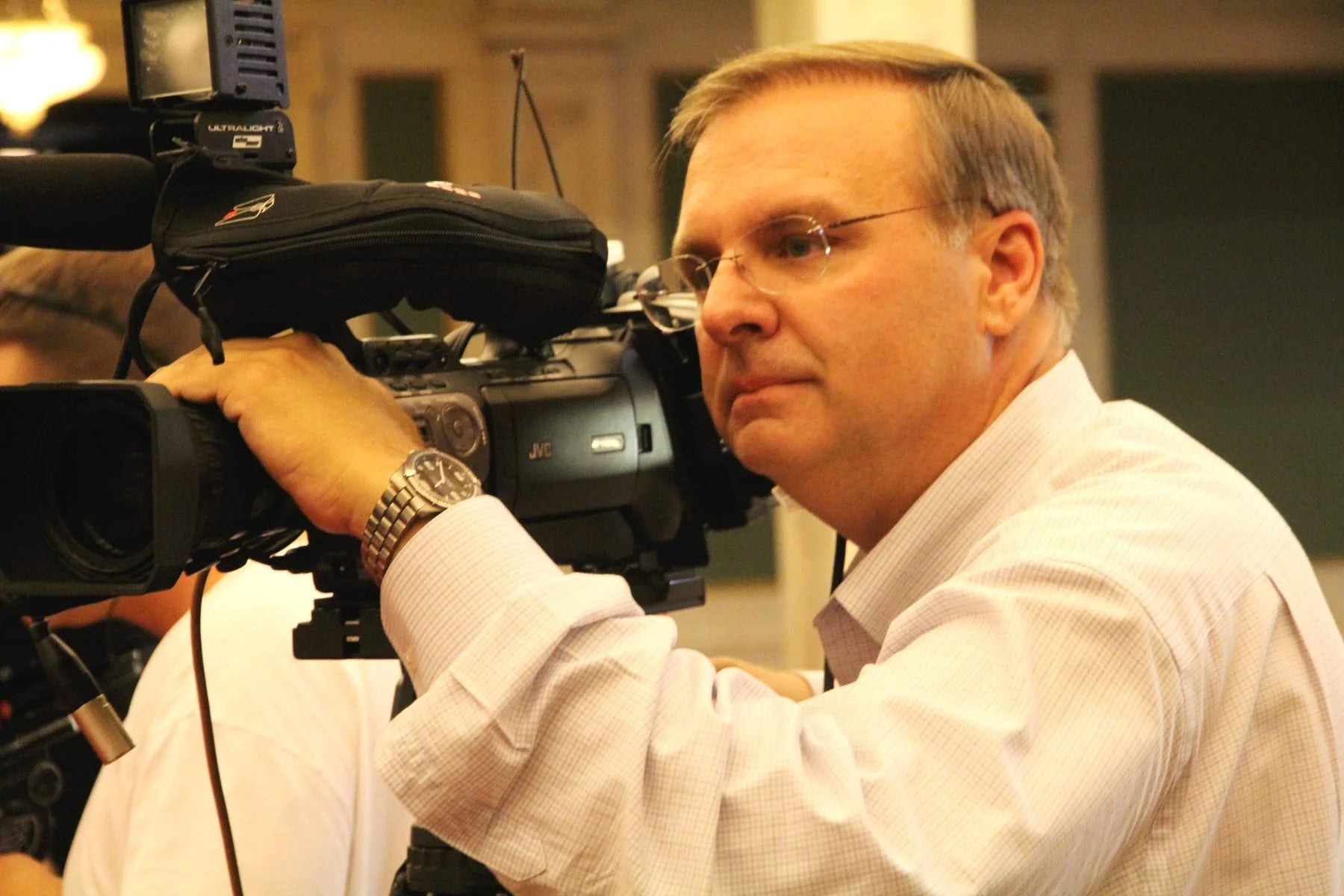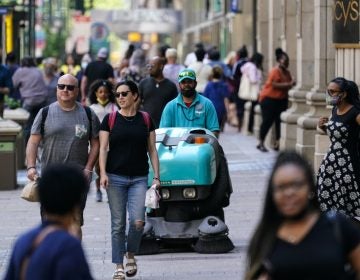Tough commute on first day of SEPTA strike
Listen
A commuter looks at notices of delays on screen at Suburban Station. (Tom MacDonald/WHYY)
SEPTA and thousands of workers represented by Transport Workers Union Local 234 remain at an impasse.
With buses, trolleys, the Market-Frankford line and Broad Street subway at a standstill, stranded commuters flocked to alternate means of transportation.
Pamela Jones, who left home early expecting problems, arrived in Center City an hour ahead of time. It’s an inconvenience, she said.
“I’m up an hour earlier, I had to park my car someplace where I’m not really sure it’s going to be safe, up so early it’s dark out,” she said. “It’s just a little bad.”
Viola Bivins, another inconvenienced commuter, said she remembers the last SEPTA strike in 2009 that lasted six days.
“When they had the other strike, I had to go through it, so I’m used to it,” she said.
The regional rail trains that are running are a good deal more crowded, said Bill Malarkey.
“Usually when we come in, we might be about 20 percent full, it was totally full when we got in this morning by the time we got into town,” he said.
Dustin Albert was caught off guard by very slow traffic on the way to dropping his child off at Andrew Jackson Elementary in South Philly.
“just dropping off the younger kid at preschool, then coming up Broad Street and trying to swing by to drop my first-grader off, traffic was just jammed,” he recounted. “It took an extra 10 minutes, which got me past the 8:30 gate closing, so we had to come inside to sign in. I’m hoping I don’t have a parking ticket.”
Visiting Philadelphia for an event, Pennsylvania Gov. Tom Wolf urged both sides to come together.
“This is something that is just bad for everyone, and it has to end,” he said.
The strike is frustrating, said Mayor Jim Kenney, but the city will not intervene in the talks unless requested to do so.
“We’re urging them to continue to talk, continue to work on this,” he said. “We understand that people are upset, and they should be because it’s very inconvenient … we’re doing the best to get it done.”
Commuter Rose Peters, who turned to regional rail because of the strike, had a simpler message.
“Hurry up and get it done, period,” she said. “It’s unfair to the riders.
She said some of the workers’ demands are fair.
“Like breaks and things like that, they should have those things,” she said. “But for any other little thing, I think they should try to work with each other and get it done more quickly.”
WHYY is your source for fact-based, in-depth journalism and information. As a nonprofit organization, we rely on financial support from readers like you. Please give today.





